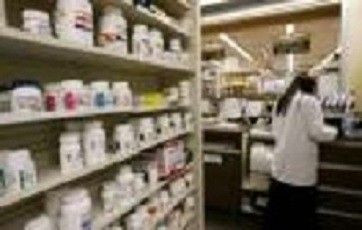FDA Acts to Stem Shortages of Two Life-Saving Cancer Drugs

In a move to address the nation's growing shortage of two leading cancer medications, the U.S Food and Drug Administration is allowing the drugs to be imported from abroad and are fast-tracking the approval of an additional drug my a new manufacturer.
In response to what the FDA described as critical shortage of Doxil, the agency announced it will allow imports of a similar version of the drug called Lipodix. Both drugs contain the same active ingredient, doxorubicn, which used to treat ovarian cancer as well as AIDS-related Kaposi's sarcoma.
The Lipodix imports is expected to end the current shortage and fully meet patient needs in coming weeks, according to the FDA.
To supplement the declining supplies of preservative-free methotrexate, a crucial medication used to treat a common form of childhood leukemia, the FDA announced Hospira has released 31,000 vials of the product -- about a one month's supply -- to hundreds of U.S. hospitals and treatment centers. In addition, the agency said it is encouraging other methotrexate manufacturers to increase their production in order to meet patient needs, and has prioritized the review of a preservative-free methotrexate generic drug manufactured by APP Pharmaceuticals.
A drug shortage can be a frightening prospect for patients and President Obama made it clear that preventing these shortages from happening is a top priority of his administration, FDA Commissioner Margaret A. Hamburg said in a statement. Through the collaborative work of FDA, industry, and other stakeholders, patients and families waiting for these products or anxious about their availability should now be able to get the medication they need.
Doxil, which is manufactured by Johnson & Johnson, has been in short supply due to manufacturing issues that surfaced at Ben Venue, a unit of the German pharmaceutical company Boehringer Ingelheim. Ben Vue's problems have also contributed to the methotrexate shortage, which reportedly led U.S. lawmakers to call for a FDA response due to fears of potentially-fatal medication shortages.
President Obama made drug shortages a national priority last fall when he signed an executive order that gave fgederal regulators more power track drug shortages, offer quick approvals of replacement manufacturing sites, and punish price gougers. In an entry on the White House blog on Tuesday, White House Deputy Chief of Staff Nancy-Ann DeParle wrote the FDA has been able to prevent 114 drug shortages since Obama signed the executive order.
© Copyright IBTimes 2025. All rights reserved.





















